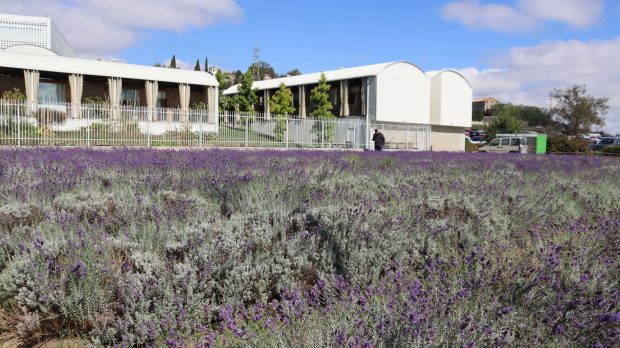The BETA TC collaborates with the Butterfly Gardens project in Vic
There are currently 160 registered butterfly gardens in Catalonia

The BETA Technology Centre at UVic-UCC is collaborating with the Jardins de Papallones project, coordinated by the BiBio research group at the Granollers Natural Science Museum. This citizen science initiative aims to reverse the decline of butterflies and other pollinators by promoting the creation of favourable habitats in urban and peri-urban areas and involving citizens in their monitoring.
Within this framework, CT BETA has incorporated the “Camp d’Espígol” garden in Vic into the project’s network of gardens. This is a municipal space, owned by Vic Town Council and managed by Osonament, where lavender is grown for use during the town’s annual festival. Lavender is a plant of great value to pollinators: it is notable for its abundant flowering, rich nectar and resistance to drought, characteristics that make it a key species for urban biodiversity.
The first results at Camp d’Espígol in Vic have shown the presence of up to 15 different species of butterflies and a high abundance of other pollinators, such as bumblebees, bees, hoverflies and even moths. As in most spaces of this type, the Small White (Pieris rapae) is the most abundant species. Migratory species, such as the Painted Lady (Vanessa cardui), and a large number of blue butterflies (Lycaenidae family) have also been detected, highlighting the diversity and vitality of this urban space.
There are currently 160 registered butterfly gardens in Catalonia, which act as microhabitats distributed throughout the territory and contribute to strengthening biodiversity and generating scientific knowledge among citizens. Throughout the year, the project also offers training courses on how to identify different species of butterflies, learn about their characteristics and curiosities, and acquire knowledge on how to use butterfly nets and carry out sampling.
